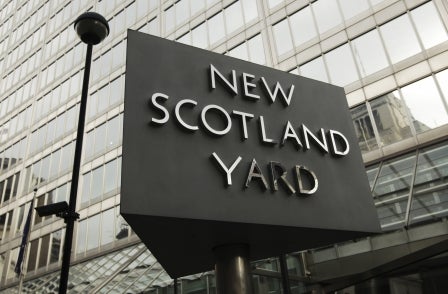
A Met officer has been banned from blogging and using Twitter after using the internet to blow the whistle on funding cuts at the force.
The move has been seen in some quarters as evidence that police chiefs will use last week’s report from Lord Justice Leveson’s to discourage whistleblowers from speaking to the media.
While Leveson conceded in his report that it was “both legitimate and justifiable” for police offers to go to the press, he added that his principal concern was “to reduce as far as possible the need for police officers to feel it necessary to do so”.
This could be achieved by “encouraging greater confidence in appropriate and confidential channels” he suggested, including the creation of an “enhanced system for protection of whistleblowers”.
This includes greater prominence being given to the Public Interest Disclosure Act (PIDA) telephone line operated by the Independent Police Complaints Commission.
PC James Patrick, reports The Times (£), has been ordered not to communicate with the public and was placed on restricted duties after a compilation of his blogs was published as a book.
His lawyer claimed that Patrick only began blogging on the cuts affecting the force after attempting to raise his concerns with senior Met offices.
Karen Todner told The Times: “There have to be questions raised if somebody goes through that process and is not taken seriously, but has the forces above brought down heavily upon them when they effectively whistleblow on social media.”
She also said Patrick was not required to gain permission from the Met for his Twitter account as it was for personal use, “but that he had declared his book as a business interest and received permission for its publication”.
The Met said this resulted in the gross misconduct investigation because “he has written and published a book about police service in contravention of MPS policy” and it “could be harmful to the reputation of the Police Service and adversely impact public confidence”.
A spokesman for the Police Federation’s said: “Our members will be concerned that James Patrick appears to be the victim of a politically motivated witch-hunt to cover up the cuts, which can only adversely affect the public’s Police Service.”
In his report Leveson said: “… if a police officer tips off a member of the press, the perception may well be that he or she has done so in exchange for past favours or the expectation of some future benefit.
“At its highest, the issue becomes one of integrity for the police officer: his or her professional standing may be put under scrutiny. Although there are matters of detail that are different for each example, the essential issue is exactly the same.”
He added: “Taking the subject of ‘leaks’ generally, I must start by making it clear that although Operation Elveden (concerned with bribery of public officials) is proceeding, the Inquiry has not unearthed extensive evidence of police corruption nor is there evidence satisfying the standard of proof that I have adopted, namely the balance of probabilities, that significant numbers of police officers lack integrity in one or more of the respects I have examined.
“Speculation, suspicion and legitimate perceptions may abound and troubling evidence has been identified in a limited number of cases (with journalists tenaciously protecting their sources), but the notion, as a matter of established fact, that this may be a widespread problem is not borne out. The scale of the problem needs to be kept in proportion.”
Leveson has also been criticised for his recommendation that the term “off-the-record briefing” should be discontinued and replaced with “non-reportable briefing” or “embargoed briefing”.
Email pged@pressgazette.co.uk to point out mistakes, provide story tips or send in a letter for publication on our "Letters Page" blog







